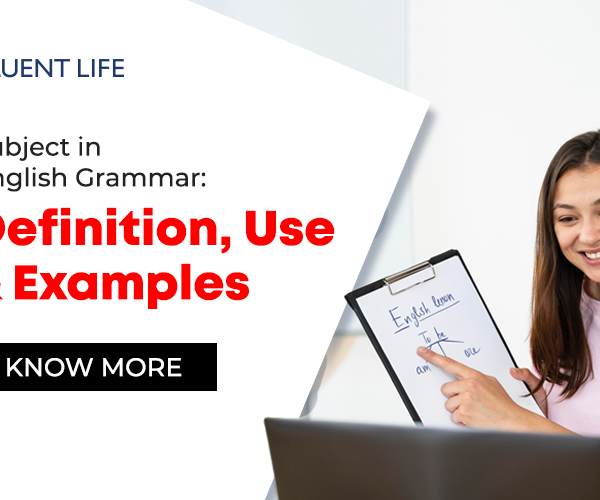The right choice of words make a world of difference to what you intend to communicate. . And that is where most communications fail. Most of the people who find it challenging to communicate are –
- at a loss words,
- have a hard time saying precisely what they mean
- repeat words
- use wrong words
If you have not paid close attention to why you chose certain words over others, there is a reason for it. And it has to do with how your brain selectively retains certain words . You end up having a mental dictionary of a set of “comfort” words that you choose to use while writing or speaking, repeatedly – over and over again.
Active & Passive Vocabulary
Your Go-To words that you use frequently, are the words in your Active Vocabulary
The words that you are aware of but hardly use , are the words in your Passive Vocabulary.


Let us further explain it using these examples. In most of these sentences you would know the meaning of the word that is being used. But you may actually not use it on a regular basis.
These are the words that are Passive and that are hardly used.



If you have a strong and growing set of words in your Active Vocabulary, it is an indication that you are a good Communicator.
Size of Active Vocabulary small – What can go wrong?
- Speaking will not be fluent, writing will not be smooth
- Message will not be conveyed
- Higher chances of misunderstanding
- Limited vocabulary is associated with limited comprehension ability
What does it mean to use appropriate vocabulary in English ?
- The use of right word in right context
- The spontaneous recall of words.
- Grammatical accuracy
- Fluency
Strong Vocabulary – Strong Communicator
The key to being to effective in your communication skills is to build on your Active Vocabulary. This is the vocabulary that has a direct impact on how you speak and write.
Using Rich Vocabulary can magically transform a sentence…
Without grammar, very little can be conveyed, Without vocabulary, nothing can be conveyed– David A. Wilkins (1972)
Active Vocabulary is just not restricted to using different kind of words. It is using different combination of words based on the context in a distinctive manner.

Which sounds better???
I am happy OR I am on the moon
He gave a big smile OR He was grinning from ear to ear
Her eyes sparkled OR Her eyes sparkled like diamonds
It was pouring. I could see a lot of umbrellas OR I saw a sea of umbrellas
Using figurative language , Phrases, Expressions, Metaphors , Similes
- Give an element of excitement
- Takes away the monotony by adding sentence variety
- Lends clarity to the message
Basic Mechanism for expanding Active Vocabulary : Read, Read, Read !!
Here is how Reading helps in a multiple number of ways .
People have a tendency to remember words that they see. Take a quick glance at this list of words .
[table id=23 /] Close your eyes and try to recollect at least 3 words that was unknown to you. If you succeed at that, try using it in a sentence.Was that easy?
Now Picture this
[table id=24 /]
Here is a scene from a railway station. It is but natural for our minds to visualize the text as we read. If you are new to the word “Commuters”- the minute you read it you understand that people who travel in train are referred to as “Commuters”.
If a person reads extensively, there is a high chance that they will encounter same words over and over again.
Our brains absorption rate is higher if we are exposed to same words, texts, expressions over a period of time. Read these sentences –
“ He gave her a strange look and secured the door”
“ As a child, I felt very secure when mother was around”
Remember when we saw the word secure the last time. It was in the example given above.
“ to secure a seat..”
The same word used in different situations give a whole new meaning to the sentence. The process of Recalling words that you have seen before , a multiple number of times in various contexts is easier.
Reading other people’s opinion helps us express ourselves better.
Editorials, Opinion sections in newspapers, blogs are all interesting ways to get an idea on other’s perspective on various subjects. By reading and understanding other’s point of view, you are broadening your own perspective.
5 Techniques for expanding your Active Vocabulary
Technique # 1: Fit reading into your schedule
Allot some time half an hour before bedtime, reading while travelling – however best it fits in your daily schedule. The idea is to bring a discipline around reading.
Technique # 2 : Increase your Reading Pool
Read books of different genres. It goes a long way in building your vocabulary. Think of the words and the sentence structure used in a Sci-Fi novel and how they will differ significantly from a non-fiction book. Your choice of book and author have a deep impact on your language as well.
Technique # 3 : Start Paying attention to Contextual Vocabulary
As you read more from a wider pool of content, you deliberately put in more effort to de-code the meaning of the word based on the Context. And when you do so, the word or the sentence has a higher chance of absorption. It is more likely that you recall these words and use it in appropriate situations while talking or writing. If you read an article on Finance, it will be heavily loaded with words such as
Asset, Equity, or Phrases like “Investors should re-balance their portfolios”
A news item on cars will have a repertoire of words such as
reliable, fuel efficient , Features.
- Reader also tries to understand the meaning of the word based on the context. Context not only helps you guess the meaning of the word but also gives a good sense of how it is used.
- You will notice that once you understand what a word means without taking external help – like looking into a dictionary or asking a person, you can easily transfer this knowledge of words into your speech or writing
Technique # 4 : Practice “Active” Reading
Vocabulary knowledge and comprehension skills are highly correlated. Comprehension is a complex process. Readers need to recognize individual words, understand their meaning within the context of the text and derive inferences and come to a conclusion. It is an easy process if you know the language well. But if English is not your native language, each of these steps can become challenging.
So how do you read to understand?
- As you read, pay attention to the Central message, the key idea, meaning of every paragraph.
- If needed highlight certain words and phrases that are difficult to understand.
- Refer to a dictionary. Understand the meaning.
- Look for synonyms.
- Re-read the sentence and see whether you understand the meaning.
Don’t you think it will be easier for you to remember this word and using it at the right instance having done such an elaborate exercise.
Technique # 5 : Speaking & Writing is as important as Reading
- Application of Words- Only when you give yourself a chance to apply these words in your everyday routine, will they be a part of your active vocabulary kit. When you talk to your friend about an article that you read, you actively look for descriptive words to express your opinion. When you sit down to write, your effort is channelized towards creating variety in paragraphs and sentences with a variety of vocabulary words.
- Learning from mistakes – When you are processing information, facts ,memories and emotions, that’s when you can tell you know a language. You may fumble the first time, but the next time you speak you exactly know which words to use.
- Helps thinking more clearly and logically- More tools you have in your “box of words,” the better you can communicate your ideas






I am not speak fluent in english. So I want learned.